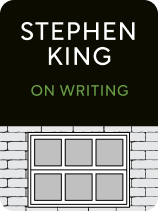

This article is an excerpt from the Shortform summary of "On Writing" by Stephen King. Shortform has the world's best summaries of books you should be reading.
Like this article? Sign up for a free trial here .
Does Stephen King have writing tips on how to become a better writer? What advice does he give in his memoir On Writing: A Memoir of The Craft?
Stephen King’s writing tips can help you learn more about your own writing strategy and help you create your toolbox of writing skills.
Keep reading for the best Stephen King writing tips and advice.
Stephen King’s Writing Tips
These Stephen King writing tips can help you learn how to become a better writer and produce quality work.
Read a Lot
One of Stephen King’s top writing tips is to read a lot. To be a good writer, you need to recognize what good and bad writing is. Reading exposes you to good and bad writing. The more you read, the more you learn. Stephen King always carries a book with him so he can read whether he’s waiting at the grocery or sitting front-row at a Red Sox game.
Often the bad writing is more instructive than the good writing. It teaches you what not to do—what’s cliche, how characters act unrealistically, how writers ruin the pacing with plodding description. It could even be inspirational—if you think a bestseller is terribly written, then you might start thinking you could easily do better.
Through thousands of hours of reading, you sharpen the tools in your toolkit. You absorb other people’s writing rhythm, how they develop their characters and plot, and how they wield language. You take what you like and forge your own style.
Write a Lot
Another one of Stephen King’s writing tips is to write a lot. King is famously prolific: He writes ten pages a day, or 2,000 words. Every three months he produces about 900 pages, a good-sized novel. He dedicates his morning to writing time, and he doesn’t move on with the rest of his day until he finishes his writing goal.
If you’re a new writer, here’s how to get started:
- Set a habit: define your writing location and carve out a daily time when you’ll be writing.
- During that time, shut your door and remove all distractions. You should get lost in your own world.
- Set your daily goal low and achievable. He suggests 1,000 words a day. Until you meet this goal each day, your door stays shut.
- Take no more than one day off a week. Keep up the momentum when writing to prevent the self-doubt from creeping in.
Writing Mechanics
A writer is an artisan who has a number of tools in her toolbox available for use—diction, grammar, phrasing. You likely already have these tools, so don’t worry that you don’t understand them well enough to be a writer. For dependable guidelines, look to The Elements of Style by Strunk and White.
King does single out two of his pet peeves—passive tense and adverbs.
Avoid Passive Tense
Passive tense arranges words so that things are done to subjects. “The car was started by the driver.” “The discovery was announced with great fanfare.” “The meeting is scheduled for seven.”
All of these sentences sound weak. In active tense, the subject does the action. “The driver started the car.” “The grandmaster announced the discovery with great fanfare.” “The meeting’s at seven.” Don’t these sentences feel better?
This is common enough advice, but why do writers still use passive voice? Because it’s safe. Passive voice avoids the need to assert a subject doing a deliberate action. Passive voice is the refuge of timid, uncertain writers.
Avoid Adverbs
Adverbs modify verbs, adjectives, or other adverbs. They usually end in -ly, as in “Tom started the car dejectedly.”
Like passive voice, adverbs are a sign of weak, timid writing. Writers often use adverbs to make sure the reader knows exactly what is happening, but this blunts the power of the verb.
Instead of using adverbs, make the context clear so that the adverb becomes unnecessary. If Tom is starting the car, the prose preceding it should be so clear it makes “dejectedly” redundant: “Tom sat for ten minutes, imagining the look on his boss’s face as he pounded out the email at 3AM that morning. He sighed and started the car.” In On Writing, Stephen King’s advice on writing mentions these fundamentals.
The Writing Process
How do you get from first draft to final draft? Here’s Stephen King’s writing process:
- Write and finish the first draft with no help or advice from anyone else—their well-meaning words can trigger self-doubt (if critical) or make you complacent (if positive). Write as quickly as you comfortably can—this keeps your enthusiasm high and limits self-doubt from creeping in.
- After you finish the first draft, take a few days off from writing. Have fun and relax.
- When you’re ready, go back to writing, but write about something totally different from what you just finished drafting. King suggests taking at least 6 weeks off from your draft. This distance will help you “kill your darlings.”
- Finally, go back to your draft. By this point, it should feel oddly familiar yet unrecognizable. Read the draft in one sitting, if possible.
- Note fixes for specific issues, like grammar and usage, deleting adverbs, plot holes, and character motivations.
- Also ask yourself big-picture questions. What is the story about? Is there a theme? Are there recurring elements? Is the story coherent?
- Go back through and revise for your second draft. Fix the small specific issues and polish your big picture ideas.
- After you finish, give the second draft to a small group of readers you trust. Listen to their feedback and incorporate as you like.
- Use however many revision cycles you’re comfortable with. King’s standard process takes two drafts and a final polish.
Incorporating Feedback
Some writers struggle with incorporating feedback healthily. Changing your masterpiece novel simply because your readers didn’t like it feels like a corruption of art. Stephen King’s advice on writing includes how to handle feedback.
But if you feel this way, why invite readers you respect to review your draft at all? If it’s simply because you want adulation for what a genius you are, then at least be honest about what you’re looking for. Instead, think of reviewers as your own personal focus group.
If your reviewers are unanimous about one direction (whether something is great or terrible), they’re probably right. If they’re tied on an issue, then you win and don’t have to change anything.
Fear Drives Bad Writing
The pattern underlying bad writing is fear—fear that your reader won’t understand you, or fear that you sound like a simpleton. Have confidence. You probably know what you’re talking about, and good writing is about how well you tell the truth, not how fancy your language is.
Stephen King’s writing tips includes everything from schedule your day to finding an agent.

———End of Preview———
Like what you just read? Read the rest of the world's best summary of Stephen King's "On Writing" at Shortform .
Here's what you'll find in our full On Writing summary :
- Stephen King's personal writing habits that led to superstar books like Misery and It
- How to make a story and characters feel real
- Why you should never use adverbs






